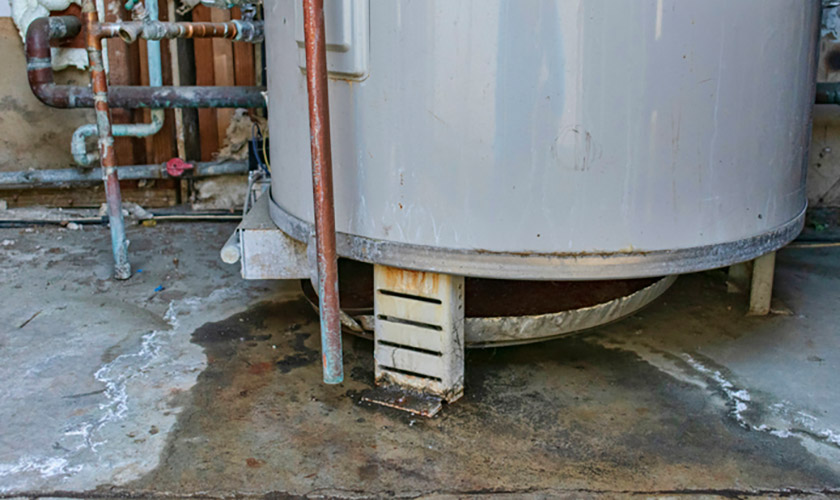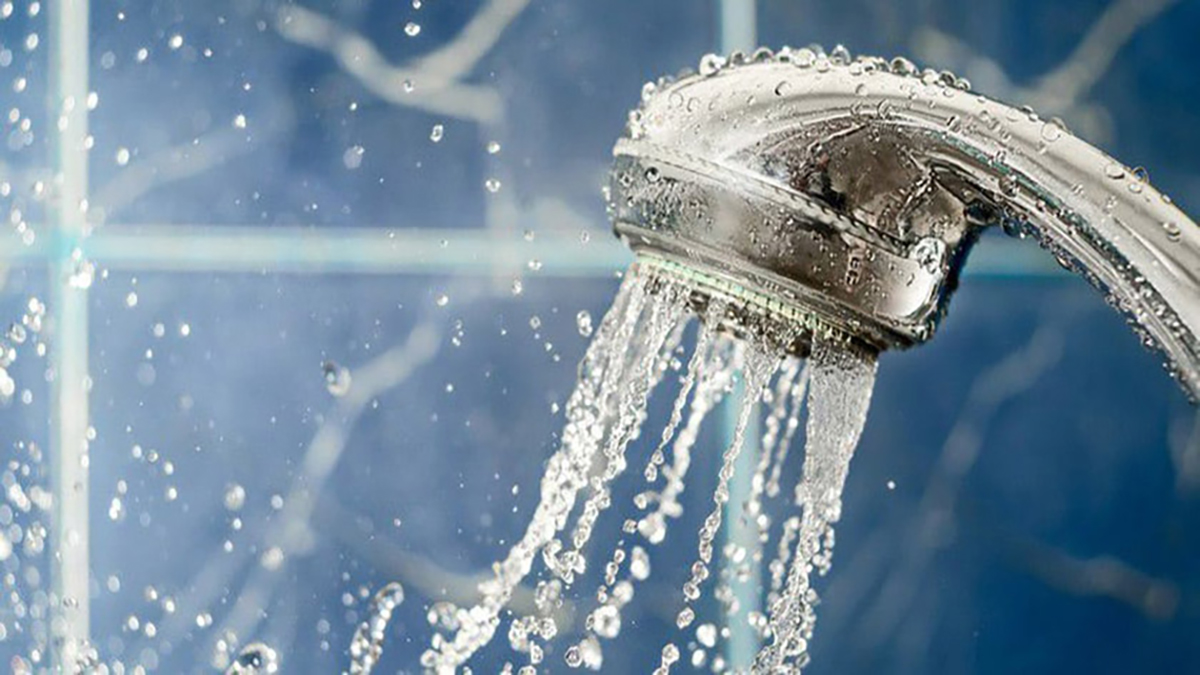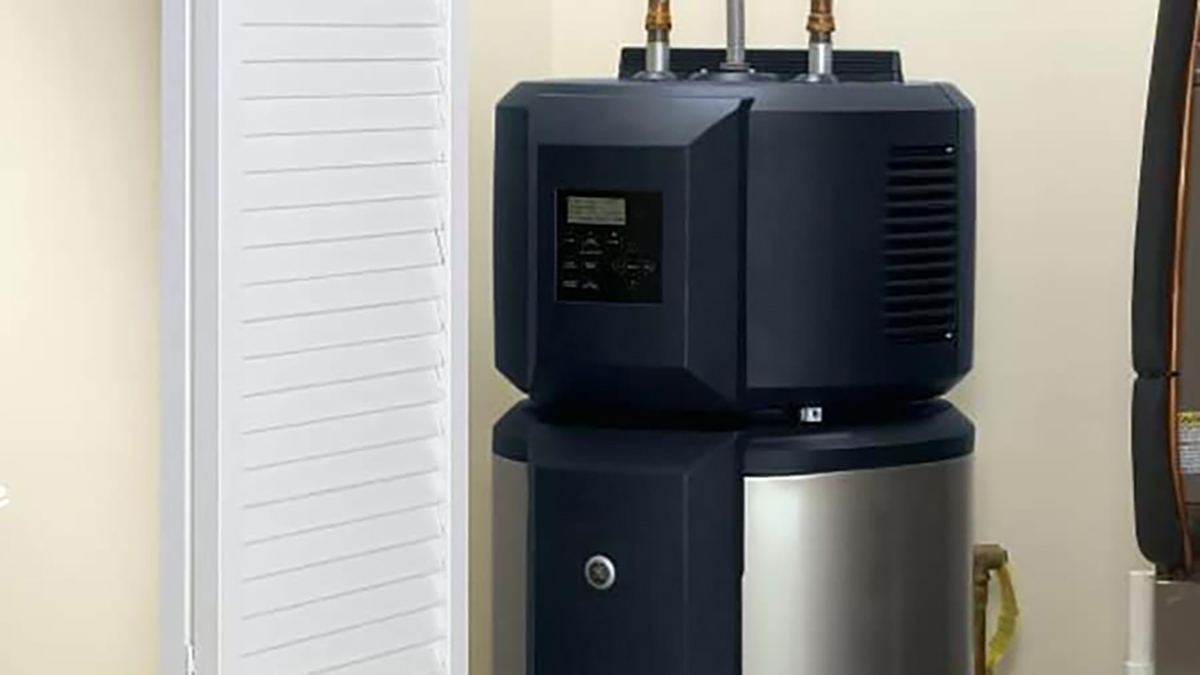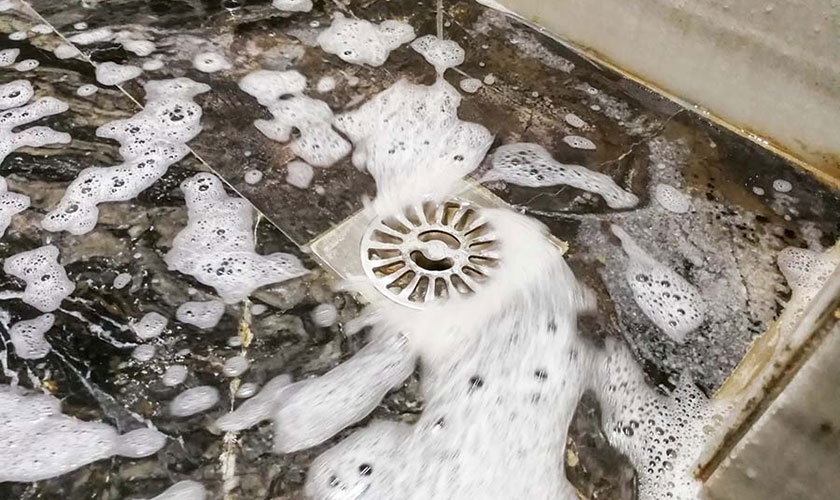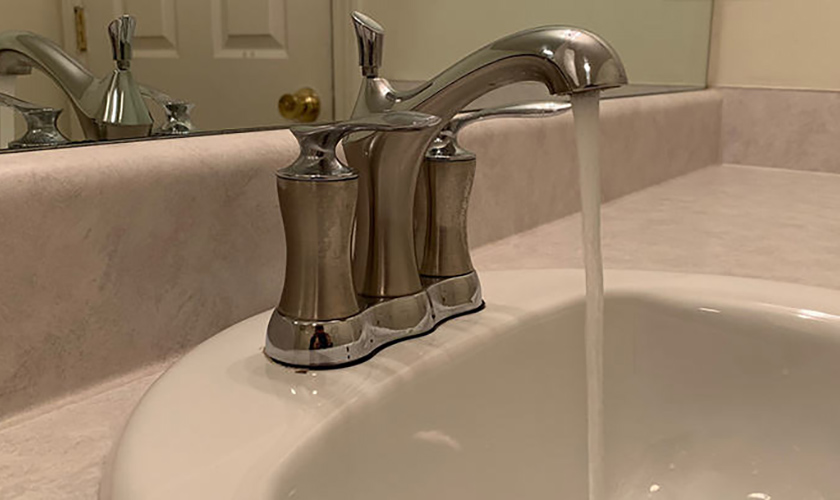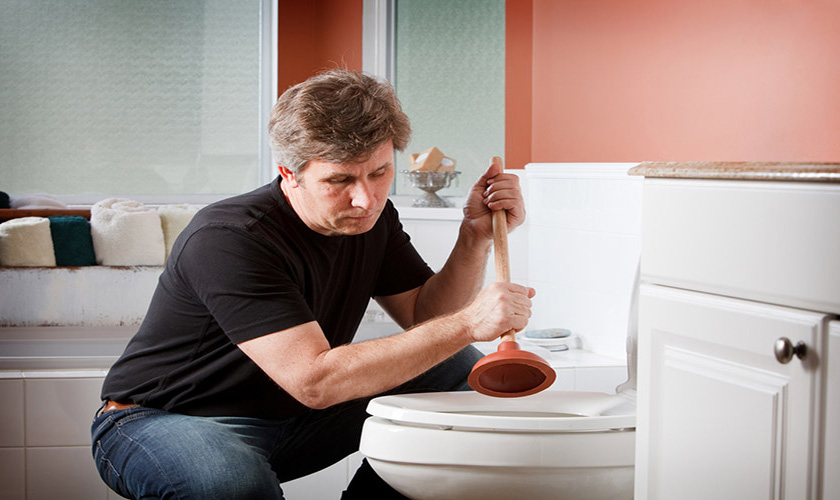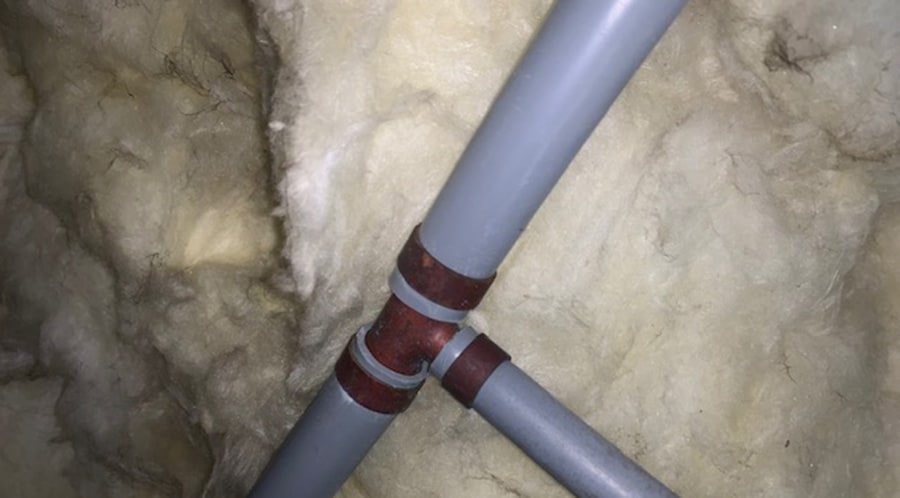
Polybutylene piping (PB) was once popular for its cost-effectiveness, easy installation, and flexibility. Initially, contractors installed around 10 million polybutylene pipes in homes in the US. However, in mid-1966, manufacturers ceased production due to allegations claiming that polybutylene pipe failures caused property damage.
Polybutylene (PB) piping was standard in homes built between 1978 and 1996. However, polybutylene pipes have since proven too fragile to withstand chemicals found in the public water supply. Research suggests that polybutylene pipes are prone to becoming brittle and cracking inside out, eventually leading to leakage.
In this article, we will be explaining what exactly is wrong with the old-fashioned polybutylene pipes in your home, as well as helpful information on how to replace them.
Can You Sell a House With Polybutylene Pipes?
When it comes to selling a house with polybutylene pipes, it can be quite a challenge. Polybutylene pipes cause uncertainty for the buyers as these pipes’ problems are not immediately visible. These pipes get weaker from the inside due to chemicals added to the municipal water supply. The damage occurs along the internal pipe walls. There’s no way to determine the polybutylene piping condition without removing it to examine how far the damage has gone thoroughly, but home inspectors and contractors won’t do that.
People looking to buy a new house and who work with brokers will be looking at several properties that preferably don’t have these kinds of pipes. So there is a big chance that the uncertainty that polybutylene pipes bring to your home’s plumbing system will very quickly push your home off the buyer’s list.
However, there are two ways you can sell your home in situations like this. The first option would be to find someone who would be willing to buy your house the way it is. That buyer will probably want to negotiate the asking price and reduce it because they have to replace the plumbing, costing them extra money. The second option would be to fix the issue related to the polybutylene pipes yourself and then put your home on the market.
If we compare these two options, the first one is very clearly the better and more feasible option for you as a seller because, in this case, you would turn the entire problem over to the buyer and walk away. The second option would consume some of your money and time, but the good part is that it would result in a higher selling price for your home.
Regarding the first option, the question arises: who would be interested in buying a house with polybutylene pipes? First, the buyer would need to be comfortable purchasing a home that requires extensive work to repair the damaged pipes. Secondly, they would need to be financially able to buy the house and then make the necessary repairs. In this case, real estate investors would be your best bet as they are the ones looking for homeowners selling homes in poor conditions.
What they do is they buy the property, which they can upgrade, make the required repairs, and then sell the homes making good profits on their investments. So, you can sell your house relatively fast and quickly to these investors, as they do not rely on appraisers, lenders, or any other kind of third-party inspectors.
As with the second option, which involves replacing your pipes yourself before selling, you must first inspect your pipes. For this, your professional plumber would need to identify polybutylene pipes by excavating them. Once your pipes have been identified as being made of polybutylene, you can begin to replace all the pipes with good ones.
It would be best to select the right contractor for the job. For this, you will need to start interviewing contractors and checking their references. Look for reviews online on sites like Facebook, Google, and Yelp. Once you find the right one, get quotes and discuss all the requirements.
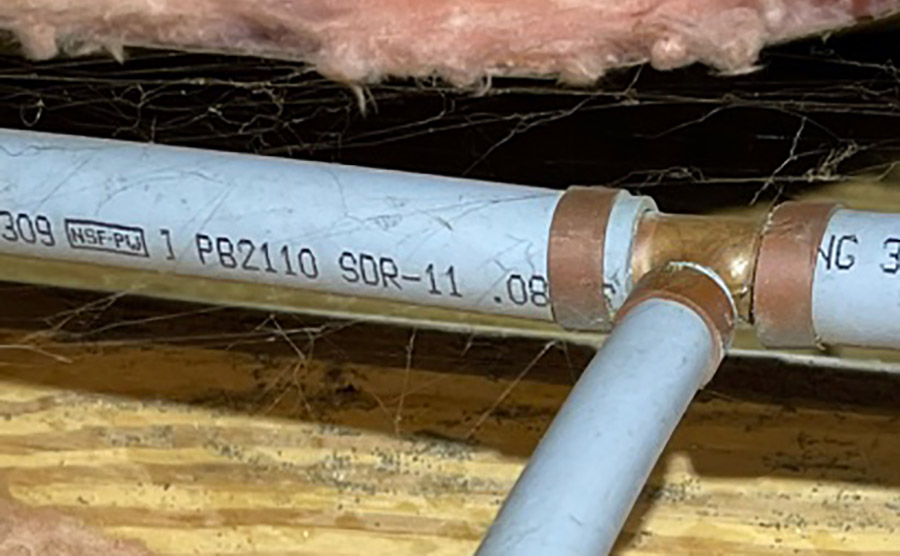
Does a Seller Have to Disclose Polybutylene Pipes?
Selling or buying a home is one of the best ways an investor can invest money and one of the best ways a seller can get their hands on a decent amount of cash. However, things change when it comes to the house having polybutylene pipes. As we mentioned earlier, banning polybutylene pipes causes them to become barriers to selling or buying a home.
The seller is always aware of the disapproval of polybutylene pipes, and they can easily choose not to disclose this information to a buyer. However, being a seller, you should disclose all the necessary information about the house, including polybutylene pipes. In this case, some buyers might demand you to replace the existing polybutylene pipes, and some might ask for a reduction in price so they can re-pipe the home after they’ve bought it.
However, in some states, residential property disclosure forms have to be utilized when selling their home. Most of these forms require the seller to disclose information related to polybutylene pipes. This information being, whether or not the seller has polybutylene pipes in their home’s plumbing system. Polybutylene pipes fall under the category of a material defect, and almost all states make you disclose any information related to a property defect.
Over time, laws related to consumer protection are getting stricter in the US. People could easily break these laws if they choose not to disclose information about their usage of polybutylene pipes on their property. Eventually, this could make them liable for lawsuits from their buyer.
Even though most potential buyers would hesitate to go for a house with polybutylene pipes, there are always specific buyers interested in it these type of properties, as we have discussed earlier. Hence, to answer the question, yes, a seller is obliged to disclose the presence of polybutylene pipes.
Should You Buy a House With Polybutylene Pipes?
Looking for your dream house can be difficult; finding a home that you like and a place that has exactly what you’ve been looking for can be challenging and time-consuming as well. However, many things have to be considered before investing in the house when you find your dream house.
One of the most important things that need to be considered is the plumbing within the house. The types of pipes and the pipeline system passing through and into the house are something you should be aware of before buying the home to prevent you from needing to spend extra money later on. Finding out that your dream house has polybutylene pipes can be discouraging, and it might sway your decision on whether to buy the home and rightfully so, these types of pipes can be risky.
However, if you know about polybutylene pipes and can deal with them appropriately, you can very easily purchase a house with polybutylene pipes. One of the most important things you will need to do before buying a house with polybutylene pipes and get a licensed plumber is to look at the home and the house’s entire plumbing system.
Only a licensed plumber can tell the polybutylene pipes’ health and estimate how long these will last without risking the house and its structural integrity. The plumber will also help you identify any potential threats and risks the polybutylene pipes pose to the house. Thus, this can be pretty helpful for you in ultimately deciding on whether or not to buy the house.
Another option you can consider if you are interested in buying a house with polybutylene pipes is talking to the seller of the home or the real estate agency that is marketing the house and ask them whether or not it is possible to get the re-piping done and if they can split the cost with you to reduce the burden on you.
This can be a good idea if you have made up your mind about purchasing the house because it is better to get the re-piping done before moving into the home. However, Re-piping is a long process that can go on for a few weeks and will also cause a lot of mess around the house, and no one wants to deal with the mess after just having moved into their new home. So, it is recommended to discuss the option of re-piping with the seller and get it done before moving into your new home.
Another significant aspect of buying a house with polybutylene pipes is the insurance problem that might come along with it. If you are purchasing a home, you likely have some homeowner insurance covering the house’s cost of damages. However, many insurance companies do not cover the damages caused to homes due to natural disasters or fires with polybutylene pipes.
This can be a problem in the long run, as in the case of floods, your insurance will not cover the damage costs, and the burden will have to be on you. Therefore, it is essential to keep this in mind before buying a house with polybutylene pipes.
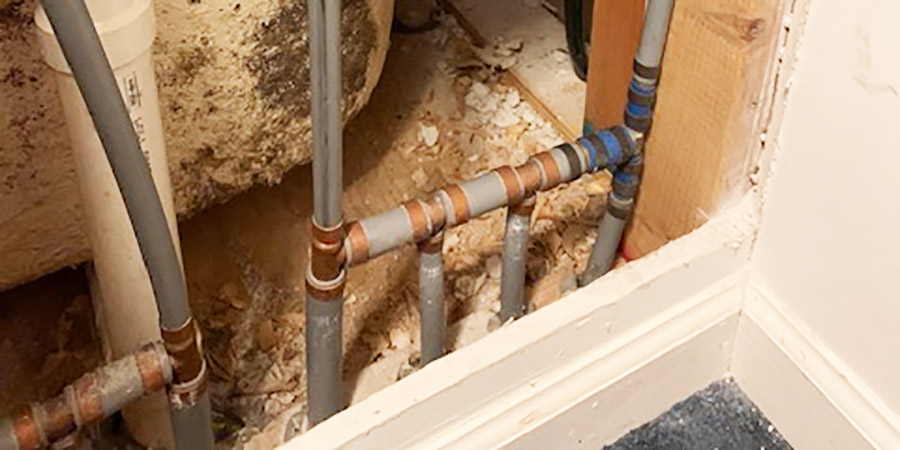
What’s Wrong With Polybutylene Pipes?
As mentioned above, the main problem with polybutylene pipes is that they are too fragile in the long run and become very weak from the inside and subsequently crack. Once the pipe is old enough to have one or two hairline cracks, the cracks will keep increasing until it has many cracks, eventually becoming too fragile to hold its structure and breaks.
The breaking or cracking of pipes means that the water running through these pipes will now have a way to leak into the house’s structure and cause long-term damage. Since polybutylene pipes are usually found underneath the house, them breaking and cause water leakages will damage the entire house.
Polybutylene pipes are a significant inconvenience for plumbers because these pipes’ cracks and leakages are not easy to find. After all, they are so tiny. To find a minuscule crack in the polybutylene pipes, one would need a very efficient plumber, and even then, it would be not easy to identify.
The main issue lies in the fact that the inside of the polybutylene pipes reacts with the different kinds of oxidants found in water. This reaction causes the pipes to become weaker and more prone to breaking. Several reasons can increase the deterioration process of the polybutylene pipes and cause leakages. These include:
- Age of pipes and fittings: if the pipes and the subsequent parts used to join the pipes together have become very old, and there is a lack of maintenance, they will likely be more fragile and break.
Levels of chlorine and other minerals in the water: the water we receive generally has certain minerals added to them to ensure that the water is safe and clean for our use. These minerals are a primary reason that contributes to the deterioration of the polybutylene pipes.
- Quality of water: every area has a water quality that can majorly affect the people living in the community and impact the pipelines that it runs through. There is extremely hard water running through polybutylene pipes in areas where the pipes are more likely to develop minute fractures and lead to leakages quickly.
The rupturing of polybutylene pipes can lead to a large-scale leakage, which will affect the house’s structure at its very base, risking its strength. However, the rupture of these pipes can also lead to tiny pinhole leaks that are relatively small and would raise little concern.
However, these small leaks will eventually deteriorate the area surrounding them and, over time, will cause a great deal of damage regardless of the size of the leakage. Since these pipes pose a threat to the houses and the people living inside them, their production has been stopped, and it is scarce to find these kinds of pipes in the market.
Can You Get Home Insurance With Polybutylene Pipes?
‘What do you mean I can’t get home insurance?’ We know that many houses built between 1978 and 1995 have polybutylene pipes. Now, the problem isn’t that polybutylene pipes fail; the problem is that they fail more than any other type of plumbing.
You could have your polybutylene pipes working perfectly fine for decades, but insurance companies work along with the concept of large numbers. In the case of polybutylene pipes, the 70% failure rate is what matters. Insurance companies don’t look at these on a case-by-case basis.
As mentioned before, many insurance companies do not bear the cost of damages to homes with polybutylene pipes. One of the significant aspects of buying a house with polybutylene pipe is the insurance problem. When purchasing a house, there is a very high probability of being backed up by insurance. The insurance usually covers the cost of damages to the home, but not damages caused by natural disasters or fires if they have polybutylene pipes.
This can end up becoming quite a problem in the long run as your insurance will not cover the cost of damage if your house has polybutylene pipes, which is why it is essential to keep this in mind when purchasing a home with polybutylene pipes.
Moreover, insurance professionals cannot be sure whether the pipes in your home are good or bad. Still, one thing is for sure: insurance companies will not provide coverage for a house with polybutylene pipes.
Can You Replace Polybutylene Pipes?
Suppose you’ve just bought a house or rented one, and after some inspection, you find out that the housing has polybutylene pipes. In that case, you might start freaking out about what to do next because, as we have already discussed above, there are some significant downsides to polybutylene pipes.
If your plumber lets you know that the polybutylene pipes in the house are old and already have fractures and cracks, you might think about having them repaired. However, you can’t repair polybutylene pipes because these pipes’ production ceased quite a long time ago.
Even if you get a section of polybutylene pipe where the leakage or fracture is repaired, another major fracture is most likely found in a different area. You will have to spend a lot of time, money, and energy trying to repair the pipes. Therefore, unfortunately, getting the polybutylene pipes in your house fixed or exchanged is no option.
You can, however, replace the polybutylene pipes with PEX piping. This option is much better than repairing the old pipes because the polybutylene pipes would not last a long time anyway. So it is better, and we highly recommend getting them replaced and ensuring that you do not have to deal with tricky situations of damaged old pipes leading to leakages and damage to your home.
Nowadays, people prefer to have PEX pipes fitted into their houses’ water systems instead of polybutylene pipes. However, other options are available, such as CPVC pipes and copper pipes.
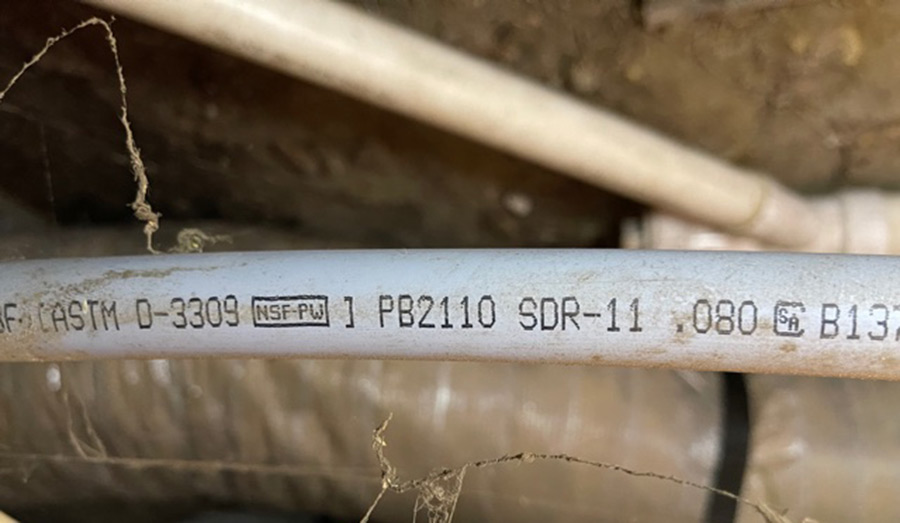
Cost To Replace Polybutylene Pipes
There is quite a common misconception that replacing polybutylene pipes costs a lot of money and is likely to break the bank. However, this is entirely false. In reality, getting polybutylene pipes replaced does not cost more than, for example, recarpeting your home would cost you. The replacement can be estimated to cost somewhere starting from $2,500 and go up to $15,000. Of course, the price depends on the size of the house, the number of rooms if you do it yourself or hire a plumber, and of course, the type of pipes you buy.
There are many different water pipes available on the market that you can purchase to replace polybutylene pipes. But, of course, there are expensive ones and relatively cheaper ones as well. Although, today, one of the most popular water pipes is PEX pipes. Cross-Linked Polyethylene (PEX) is basically a plastic material used to make pipes for water systems in our houses. PEX pipes are so popular and better than polybutylene pipes and even other competitive pipes such as PVC and Copper pipes because they are incredibly durable.
PEX pipes last a very long time, and over the years, people have faced little to no issues with these pipes becoming fragile, breaking, and leaking. Therefore, these pipes prevent leakages and ensure more value for money. Along with durability, these pipes are also heat resistant which makes PEX pipes a great choice. The price of PEX pipes ranges between $0.40 to $2.0 per linear foot, depending on the diameter of the pipe.
Another option is to replace polybutylene pipes with copper pipes. Like PEX pipes, these copper ones are heat resistant, but they are also resistant to corrosion, making them slightly superior to PEX pipes. Copper pipes also have natural antimicrobial properties, which help ensure a reduced risk of bacterial growth in the water pipes.
Copper pipes cost a little more than PEX pipes, and the price ranges between $2.50 and $3.50 per linear foot. However, copper pipes are exceptionally durable and, thus, will last a long time if you use these to replace fragile polybutylene pipes.
Are Polybutylene Water Supply Pipes Bad? Now You Know
Polybutylene pipes were quite popular back in the day when there was little variation in the materials used to make water pipes. However, with time, these pipes’ faults became more evident, and different types of pipes were developed and produced that were much stronger and durable than polybutylene pipes.
Therefore, having knowledge about polybutylene pipes and ensuring that you appropriately deal with them is very important. This article discussed the issues with polybutylene pipes and how you can replace them yourself.


